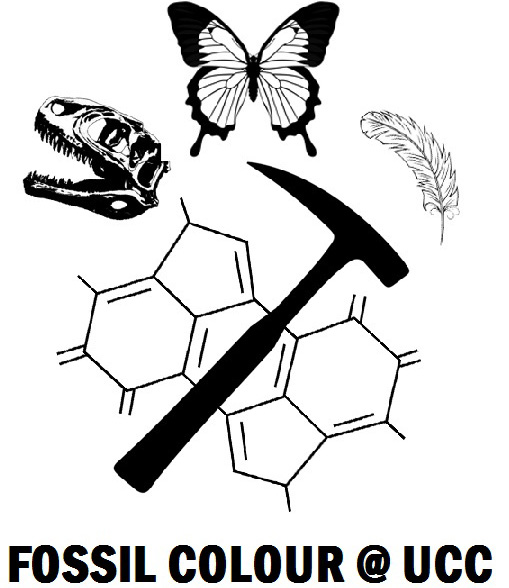Careers in palaeontology
Help! I want to be a palaeontologist. What subjects should I do in school?
In the first instance, study Science at Junior Cert level. Then, study at least one science subject at Leaving Cert level. It doesn’t matter which one, as you only need one science subject to access most science degree programmes at third level. Biology is a good choice, and chemistry is useful too. Geography can help, as the Leaving Certificate curriculum includes 25% geology, so it’s a nice introduction to the rock record. However it is not essential to do all of these subjects for Leaving Cert, as all university courses will assume no prior knowledge. In first year you start from scratch, typically covering the Leaving Cert content plus a little more.
What about university? Do I need to go abroad?
Not at all. 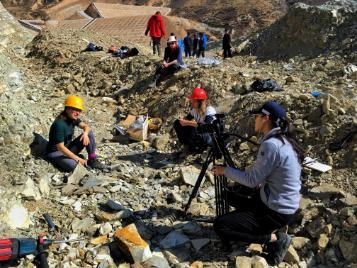 Many Irish universities offer degree programmes that include palaeontology. Most palaeontologists have a primary degree in geology, earth science, or zoology. Some palaeontologists, though, have degrees in chemistry or geography, so there are many paths. A geology degree gives you a really good understanding of the history of our planet and the processes that shape it, plus a good grasp of deep time (millions and billions of years!). As a palaeontologist with a geology degree, you will find it easy to look at the rocks and work out the habitats that ancient organisms lived in, to think about evolution in terms of millions of years, and to recognise how the fossilization process might have affected how the fossil looks today. As a palaeontologist with a zoology degree, you will have a good appreciation of animal biology, ecology, behaviour, evolution at the level of genomes, populations and species. There’s no right or wrong way to become a palaeontologist, but in general you will study more palaeontology in a geology degree.
Many Irish universities offer degree programmes that include palaeontology. Most palaeontologists have a primary degree in geology, earth science, or zoology. Some palaeontologists, though, have degrees in chemistry or geography, so there are many paths. A geology degree gives you a really good understanding of the history of our planet and the processes that shape it, plus a good grasp of deep time (millions and billions of years!). As a palaeontologist with a geology degree, you will find it easy to look at the rocks and work out the habitats that ancient organisms lived in, to think about evolution in terms of millions of years, and to recognise how the fossilization process might have affected how the fossil looks today. As a palaeontologist with a zoology degree, you will have a good appreciation of animal biology, ecology, behaviour, evolution at the level of genomes, populations and species. There’s no right or wrong way to become a palaeontologist, but in general you will study more palaeontology in a geology degree.
How much palaeontology will I study in my degree?
Here at UCC you can study palaeontology in every year of your CK404 degree. In first year everyone who selects CK404 on their CAO form does the same subjects. From September 2021, we are putting in place a new degree structure that makes it easier to choose a palaeontology path – you will be able to do a geoscience degree with a strong palaeontology “flavour”!
In first year everyone in CK404 does the same subjects, which includes:
- GS1001: Introduction to geoscience. In this module there are several lectures on the fossil record, including lectures on the Jurassic World movies!
- GS1002: Geoscience fieldtrip. This is a residential fieldtrip to Antrim and includes a half day collecting fossils in the field! And learning about them (obviously).
In second year, if you choose our new palaeontology theme, you will study:
- GS2002: Earth Systems: our evolving planet. This module looks at how life has impacted planet Earth through its long history. You will learn about the interactions between the geosphere, hydrosphere, biosphere and atmosphere over billions of years.
- GS2003: Field I. On this residential fieldtrip you will visit several localities with lots of fossils. You will find fossils and work out where they lived, what behaviours they show, and how they died.
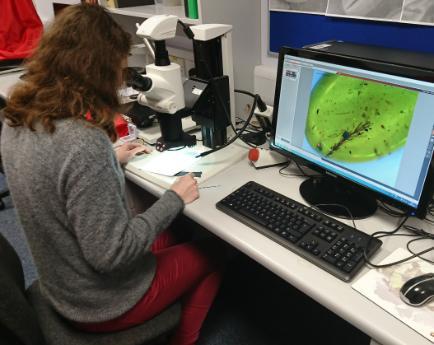
In third year you will study:
- GS3001: Palaeontology 1. This module introduces you to the most common invertebrate fossils in the rock record. You will learn about how, where, and when they lived, their diets, etc. This module includes lots of practical hands-on work with real fossils.
- GS3009: Evolution for Geologists, or BL3002: Evolution. These modules look at the major events during the history of life over the last 4.5 billion years of Earth history. You will learn about the evolution of everything from microbes to plants, invertebrates and vertebrates, and what factors shaped their evolution. This module includes lots of tutorials where we look at topical research, student debates, and other practical work. BL3002 is basically all of the content in GS3009 plus extra lectures covering plant evolution from the perspective of modern plants, evolutionary processes (e.g. speciation), and human evolution.
In fourth year you will study:
- GS4006: Fossil preservation. In this module you learn about some of the most amazing fossils on our planet – ones with soft parts preserved – and what they tell us about the evolution of life. Again there are lots of tutorials where we discuss controversial current research, and lots of hands-on practical work using real fossils.
- GS4001: Frontiers in Geoscience. In this module experts from Ireland and from around the world come to UCC and tell our community about cutting-edge research advances and discoveries. Each year there are usually two lectures from top-class palaeontologists, and there are dedicated sessions after the lectures to chat to the experts in a group with other students.
- GS4002: Final year project. This is your thesis project, and you can choose to select a fossil locality to study.
What next? Should I do a Master’s?
Maybe! 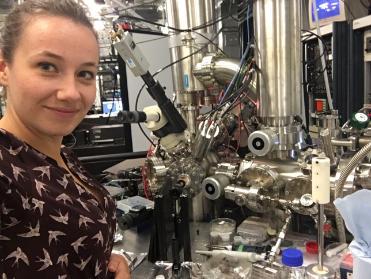 But not necessarily. If you want to pursue a career in palaeontology you will need to do further study and training, starting with either a taught MSc in palaeontology or a PhD. There are no taught MSc programmes in palaeontology in Ireland but there is a taught MSc in Evolutionary Biology at UCD (which includes some fossil work). If you want to do a dedicated MSc in palaeontology there are some excellent examples in the UK, including the taught programmes at the University of Bristol, University of Manchester and University of Southampton. A taught MSc is a good idea if you’re not fully certain whether you’d like to continue down the palaeontology path, as it’s only a year commitment. It also gives you a broad overview of palaeontology as a whole, and enhances your general knowledge of the fossil record and how we work with fossils. However, a MSc is not for everyone, and some people – especially those who are certain they want to pursue a career in palaeontology – prefer to go straight to a PhD. MSc programmes are also expensive – upwards of €10000 for fees alone.
But not necessarily. If you want to pursue a career in palaeontology you will need to do further study and training, starting with either a taught MSc in palaeontology or a PhD. There are no taught MSc programmes in palaeontology in Ireland but there is a taught MSc in Evolutionary Biology at UCD (which includes some fossil work). If you want to do a dedicated MSc in palaeontology there are some excellent examples in the UK, including the taught programmes at the University of Bristol, University of Manchester and University of Southampton. A taught MSc is a good idea if you’re not fully certain whether you’d like to continue down the palaeontology path, as it’s only a year commitment. It also gives you a broad overview of palaeontology as a whole, and enhances your general knowledge of the fossil record and how we work with fossils. However, a MSc is not for everyone, and some people – especially those who are certain they want to pursue a career in palaeontology – prefer to go straight to a PhD. MSc programmes are also expensive – upwards of €10000 for fees alone.
Where can I do a PhD in palaeontology? How much does it cost? How long will it take?
You can do a PhD in palaeontology at any university where there are palaeontologists! Check out the websites of a few universities and look for palaeontologist among the ‘staff’ pages of the geology, zoology and plant science departments. Be aware that sometimes researchers that work in palaeontology can be included in departments such as geography, chemistry, or environmental science, so don’t forget to check there too. Look at what kind of research the palaeontologists do, and when you find someone working on an area of research that interests you, contact them! Ask if they have any PhD positions on offer, or if they’d like to help you develop an idea. It is a good idea to have a CV ready and also some ideas for research projects ready before you contact the researchers – it shows that you are serious, committed, and professional.
Many PhD programmes nowadays are funded – either the supervisor has been awarded funding from a funding agency (e.g. Science Foundation Ireland), or else the student may apply for funding (e.g. to the Irish Research Council) and has won a scholarship. In either case, this type of funding typically covers four years’ worth of fees (in Ireland, usually €5000 – €6000 per year), a stipend (tax free “pay” of €16500 or more, depending on the funding agency), plus research expenses (€2500 per year or more, depending on the funding agency). A small number of PhD students are self-funded, but this option is not advisable as it places major financial strain on the student.
Most universities expect a PhD to be finished in four years. Some students finish a little early, and others take a little longer, but most students do finish around the four year mark.
What then? Am I a palaeontologist now?
Yes you are! 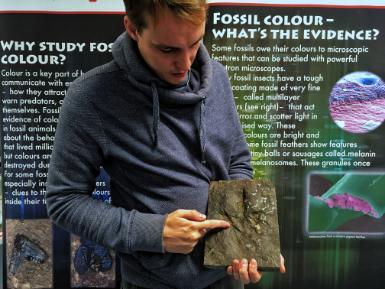 But it is rare for a researcher to be appointed as a university lecturer straight out of a PhD. Most researchers will do a period of postdoctoral training of between one and five/six years before they are competitive for a permanent university post. Most researchers will do at least part of their postdoctoral training at another university, sometimes in a different country, to where they did their PhD. This gives you opportunities to learn how research is done in other places, to learn from new colleagues, peers, and a new mentor.
But it is rare for a researcher to be appointed as a university lecturer straight out of a PhD. Most researchers will do a period of postdoctoral training of between one and five/six years before they are competitive for a permanent university post. Most researchers will do at least part of their postdoctoral training at another university, sometimes in a different country, to where they did their PhD. This gives you opportunities to learn how research is done in other places, to learn from new colleagues, peers, and a new mentor.
What do palaeontologists do when they are appointed as a university lecturer?
Normally lectureships involve some teaching and admin work as well as research. You will be expected to teach and/or coordinate a few modules, mentor undergraduate student thesis projects, help out with student fieldwork, etc.
What if I do a PhD in palaeontology but change my mind. Am I employable in other areas?
Yes! Regardless of your topic, a PhD tells an employer that you have good written and oral communication skills, that you are committed and motivated and can see a project through to completion, that you have good IT skills in data analysis and graphic design, and can work as part of a team. Depending on your PhD project, you may also have various important lab skills, skills with specific software, and good field skills (in working outdoors). You may also have experience in people management (e.g. if you mentored an undergrad), in working with the public (via public engagement) and/or the media. So a PhD gives you important transferable skills in data analysis, communication, and potentially labwork and fieldwork.

